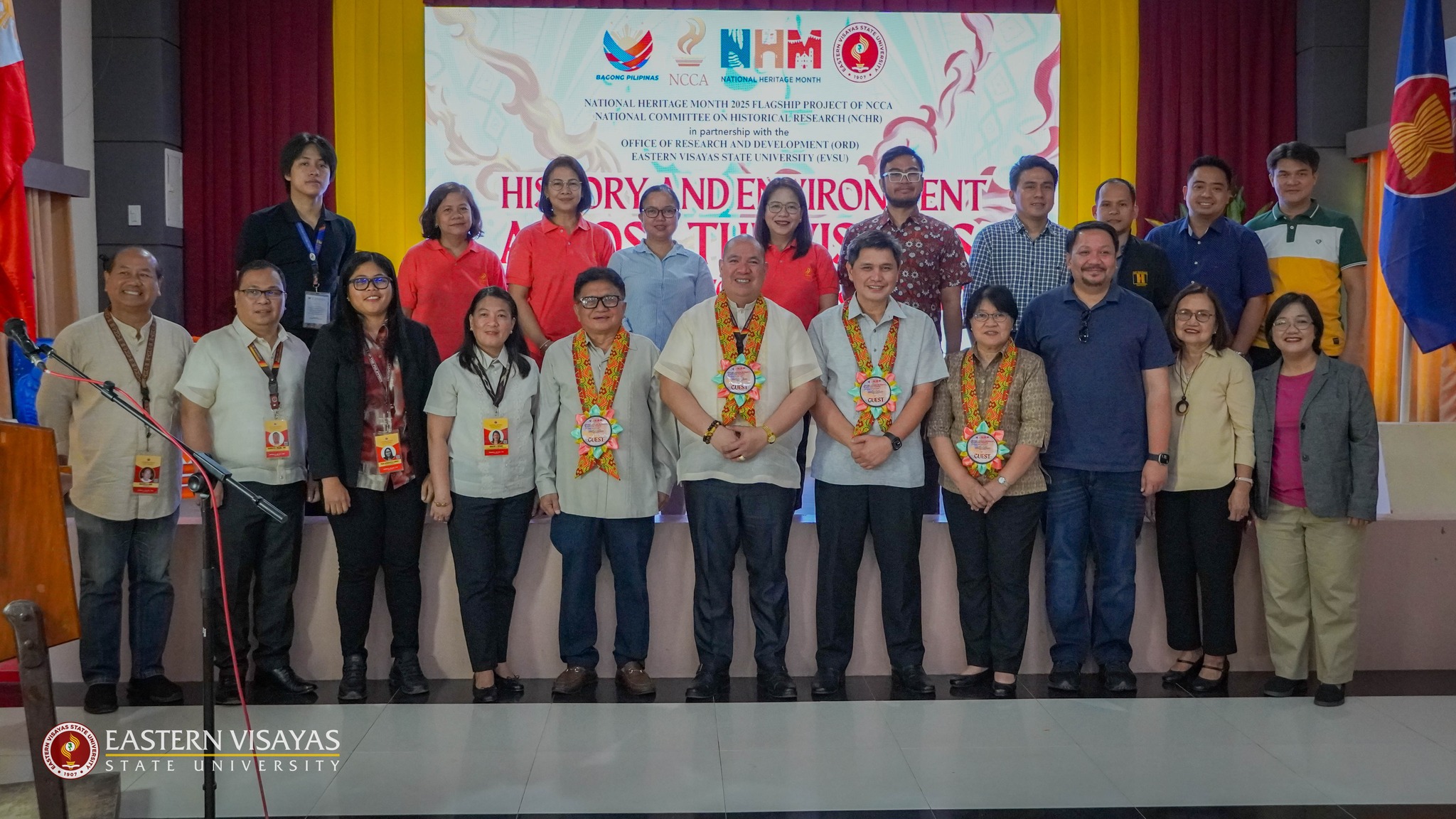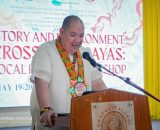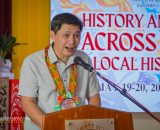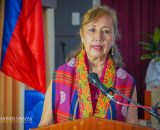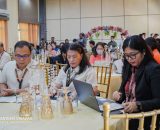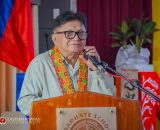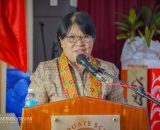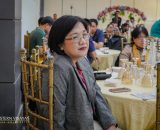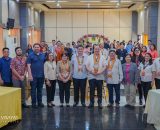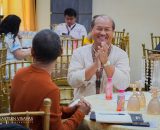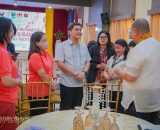EVSU hosted the National Heritage Month 2025 flagship project of the National Commission for Culture and the Arts, together with the National Committee on Historical Research (NHCR), in partnership with the university’s Office of Research and Development, at the Graduate School Function Hall on May 19–20, 2025. The event carried the theme, “History and Environment across the Visayas: A Local History Writeshop.
This reflective down- memory-lane symposium aims to cultivate the appreciation to our history and harness the historical knowledge of the participants—graced by faculty, researchers, historians, and students.
Dr. Borrinaga, retired professor from the School of Health Sciences of the University of the Philippines- Manila highlighted his talk on the Eastern Visayas Historiography: Recent Trends, Challenges, and Prospects.
The first day’s lecture on history and heritage entails Writing the History(ies) of the Nation and the Region: Purpose and Connections by Dr. Maria Nela Florendo Professor of History, University of the Philippines, while Prof. Joyce Dorado Dorado Alegre hinges on The State of Heritage Conservation in Eastern Visayas. The afternoon session’s strand on Philosophy of History and Interdisciplinary Studies underscored the researchers’ topic, to wit: Inagian, Handuraw, at Kapuslanon: Ang Dalumat at Paglikha ng Kaalamaag Pangkasaysayang Pilipino by Dr. Vicente C. Villa, Professor of History- University of Philippines Diliman, and Indigenous Rights and the Politics of Recognition in the Philippines: Case of the Ati People of Panay by Dr. Jeffry V. Ocay, Campus Director EVSU -Ormoc Campus
Alongside the presentation of the themed topics is the writeshop and presentation of the draft manuscript of the budding researchers. For one, for the community-based history and heritage strand, Prof. Angelli Marie Antoni presented her group’s study on A Multifaceted Analysis on the Return of the Balangiga Bells: Inputs for the LGU’s inclusion of the Youth in the success of Heritage Preservation and Tourism; also, Ms. Majerly Mahusay put emphasis on Institutional History of Energy Development Corporation’s Southern Negros Geothermal Project from 1984-2024, and Philip M. Ravena focused on Ang Bantug nga si Ulang Oto: Revisiting and Reconstructing Bandit History ‘from Below’ in Early 20th Century Maasin, Iloilo.
As regards the Comparative Local Histories strand, interesting research studies were also presented: The Environment of Samar Pueblos in the 19th Century as Depicted in Franciscan Narratives by Manuelito Uy; The Catholic Apologetics Movement from Prewar Cebu (1935) to Martial Law- Era Bohol (1982) by Mark Steven Pandan; Pacification through Planning and Public Works: Early20th Century ‘City Beautiful’ Plans f Cebu and Iloilo by Chrionni Bernard H. Decrepito.
The last strand for the Women and Civilian Roles in World War II Guerilla Resistance introduced two Leyte-based researchers whose areas of interest are focused on Region VIII as the Locale of the study: Silent Resistance: Civilian Support for Guerilla Movement in Silago, Southern Leyte (1943-1945) by Jobert Narte, and The United States Armed Forces in Far East-Women’s Auxiliary Services (Medical Unit) of the Second Guerilla Brigade in Abuyog, Leye, Philippines ( 1942-1945) by Prof. Rico June Monte.
The presentation of the manuscript underwent scrutiny and feedback from the select panel members to improve the content of their historical research study.
In her closing remarks, Dr. Pearl Aphrodite B. Carnice, the Director for the Research and Development, expressed her warmest felicitations to the organizing committee, not to mention the participation of different scholars from all over the country.
This colloquium of the country’s scholars is a testament to revitalizing our most cherished history and preserving the enriched historical artifacts that our ancestors left us behind. This is a conduit to more scholarly interactive discourse towards valuing our very own history.
Written by: J Genobiagon | UMDC
This article is aligned with the Sustainable Development Goal (SDG) 04: Quality Education; SDG 11: Sustainable Cities and Communities; SDG 13: Climate Action; SDG 16: Peace, Justice, and Strong Institutions; and SDG 17: Partnerships for the goals;




